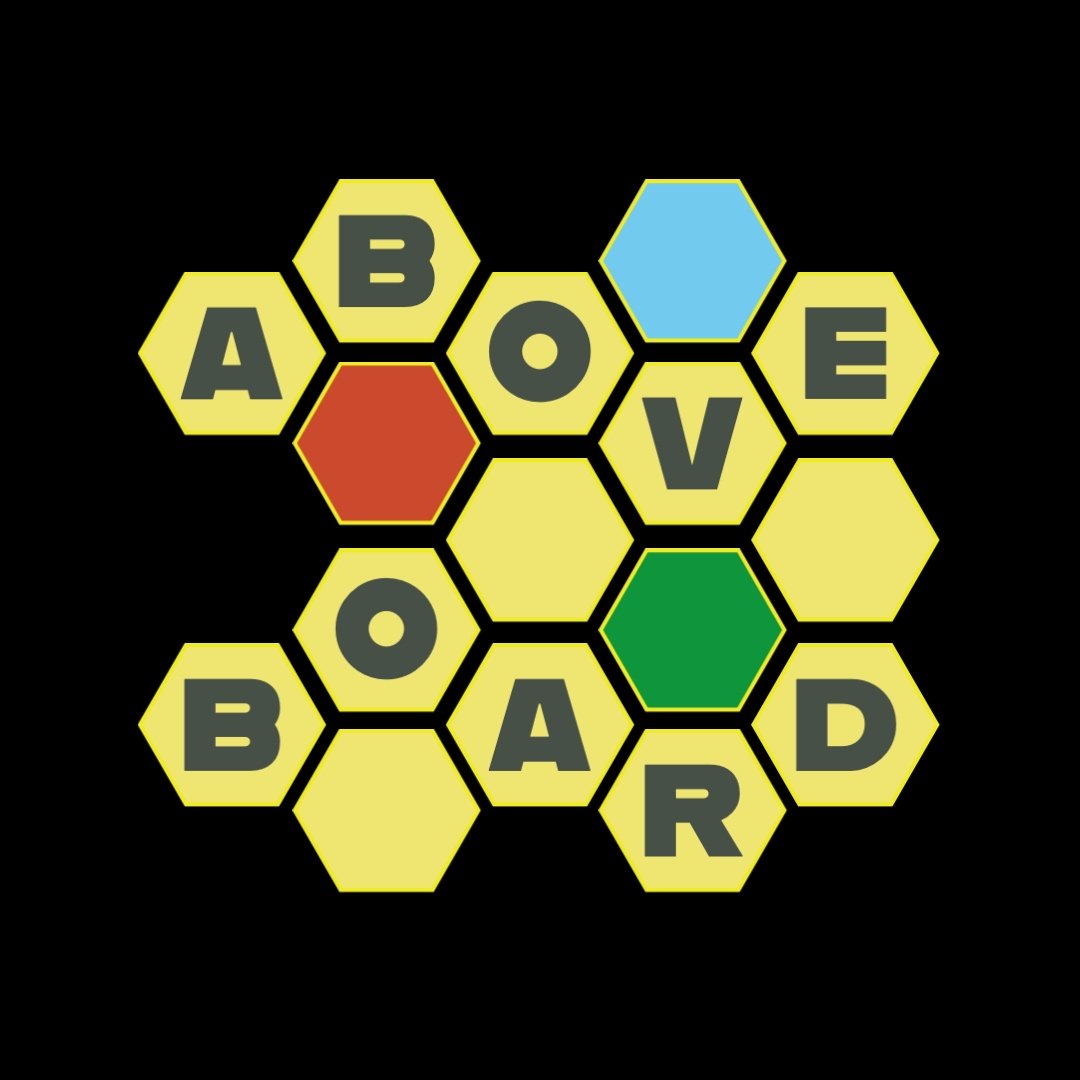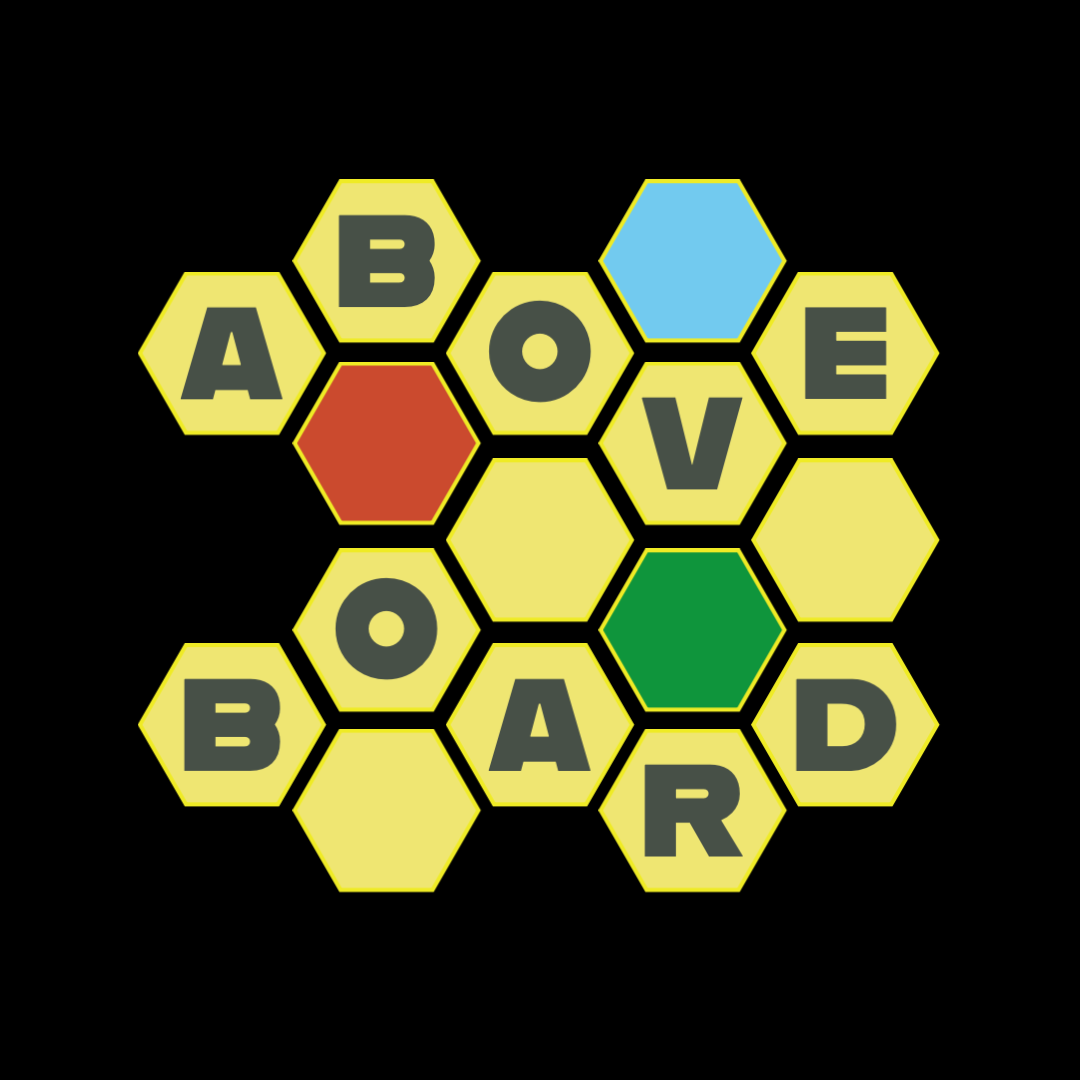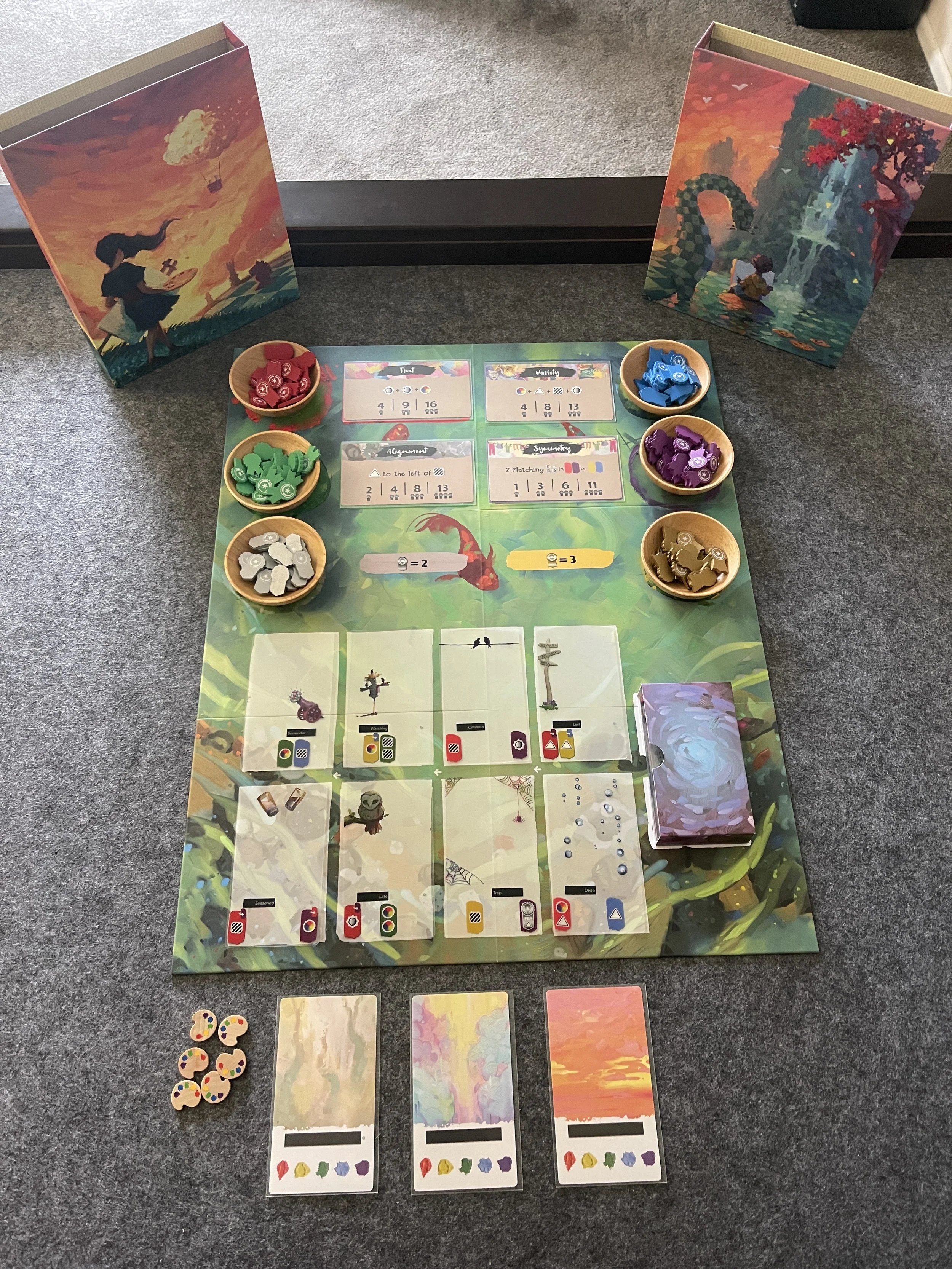Canvas + Reflections Review
A perfect balance of style, serenity and puzzle-solving gameplay, Canvas is a work of art!
Board games, much like art, are subjective; just because I like a thing doesn't mean others will share that opinion, which explains the existence of Monopoly, I mean, someone had to have approved of that thing for it to be published right? Canvas and its expansion, Reflections, like the art it’s meant to imitate, contains an ideal blend of colour, substance, and entertainment presented in a bold package that speaks to the finest qualities of modern board game design.
Canvas is a 1-5 player hand management, set collection game where the concept is to create works of art fit for the finest galleries. Awards are presented based on four artistic objectives that are randomly selected at the start of each game. The idea is to create a painting that encapsulates these qualities, such as composition, tint or variety and have this reflected through your finished piece.
The game uses transparent cards with a copious range of artful elements from the abstract to the whimsical, players must combine exactly three cards to create a finished piece and may have no more than 5 cards in their hand at a time. If a player ever finds themselves with a full hand of cards, their next turn must be spent creating their work before they can continue to draft cards. These transparent cards are sleeved into a canvas card which depicts a colourful yet, blank slate for the player to use as a backdrop.
At its heart, Canvas is a puzzle game. Collecting just the right cards to fulfil as many of the objectives as possible in a single painting is an exercise in mental gymnastics. In my first couple of games I made what I now understand to be a classic blunder in Canvas, that is, trying to create a cool painting based on the images on the cards, rather than paying attention to the specific objectives and choosing cards that will help me attain them. It’s easy to see why, for creative types, the puzzle element can easily take a back seat to the more inviting visual aspects of the game. But it’s not all bad news, as there is a variant scoring method that allows the players to collectively award a prize for the most admirable artwork, it may not win you the game, but you get to win at life, so that’s nice!
The base game of Canvas contains enough cards to keep a group of board game art students happy for dozens, if not, hundreds of playthroughs, you may never see the exact same work recreated twice. But if you add the expansion, Reflections, to the mix, then you’re presented with a veritable cornucopia of choices as the cards contained in this expansion are reversible! The rear side of the cards contain a completely new take on the front side’s image. A ringed alien planet, becomes a classic saucer-like UFO when flipped! By allowing double-sided imagery, the designers of Canvas have ensured an almost limitless number of creative works are possible!
The game’s drafting mechanic allows players to expend easel tokens to take a much desired card before it’s made it to the front of the drafting queue, this serves not only to ensure players have a chance to get the card they need, but also adds value to the skipped over cards as the tokens remain there for whomever ends up selecting those cards in the future. This adds a nice little bidding-style touch to the gameplay.
Canvas has a dedicated solo variant which plays very easily and allows a player to engage in a game or two in a very short time. There are no complicated rules to learn nor any added elements like AI decks or alternate player boards either. Best of all the core game experience remains unchanged for the player as they are trying to gain the highest score they can. Increasing levels of difficulty mean pushing the points goal posts out accordingly. Simple and effective.
For some, the gameplay might lack the depth of more strategic abstract games like Sagrada or Azul, but it’s Canvas’ clean, streamlined simplicity that appealed to me the first time I tried it and I’m happy to say that dozens of games later, I still find myself breaking it out to try to set a new high score which scratches the same itch as did playing the old 80’s arcade machines when I was a kid. Like Defender, but with paint!
Have you tried Canvas? If so, what were your thoughts? Or perhaps you have another favourite art-inspired game? As always I’m keen to hear from you, so by all means, share your thoughts in the comments below or get in touch at aboveboardnz@gmail.com. Until next time, have fun!









